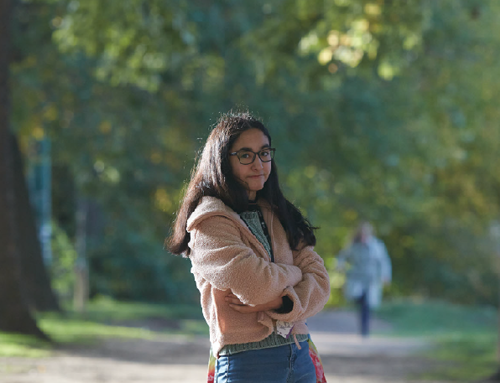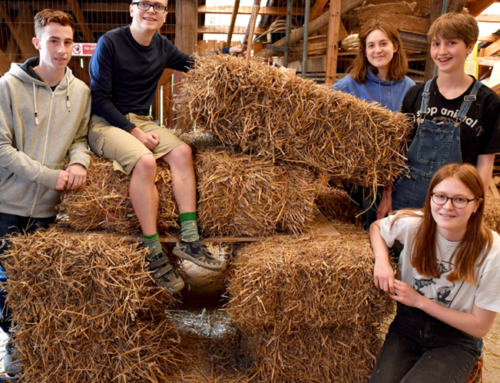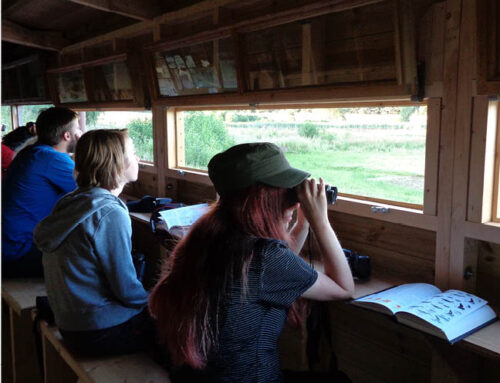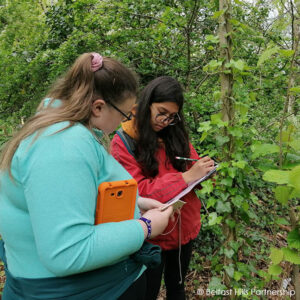 On 21 April, the Department for Education (DfE) launched the new Sustainability and Climate Change Strategy. A stronger focus on the role of education in preparing the next generations to live and deal with the intertwined environmental, health and climate crises was extremely needed. Therefore, we welcome the launch of the strategy. It is great to see that the value of young people’s connection to their local environment has been properly acknowledged, as well as the importance for young people to feel empowered through practical positive action.
On 21 April, the Department for Education (DfE) launched the new Sustainability and Climate Change Strategy. A stronger focus on the role of education in preparing the next generations to live and deal with the intertwined environmental, health and climate crises was extremely needed. Therefore, we welcome the launch of the strategy. It is great to see that the value of young people’s connection to their local environment has been properly acknowledged, as well as the importance for young people to feel empowered through practical positive action.
Young people in Our Bright Future have created three asks about the positive changes they want to see for themselves and the environment and the one closest to their hearts is definitely “learning more in and about nature”. That’s why in recent months we met with representatives from DfE and actively fed into the strategy. Three young people from Our Bright Future also sat on the Youth Panel that has informed the strategy in its development phase and will steer its implementation. This is a significant step in the right direction for good quality youth engagement.
For me, two positive points stand out in the Strategy. Let me take a moment to celebrate these with you and reflect on next steps.
The first is the announcement of a new school subject – a natural history GCSE – which will enable young people to learn about organisms, the environment and sustainability and gain a deeper and hands on knowledge of the natural world. This will represent a fantastic opportunity for many young people who for the first time will be able to develop a rich understanding of the natural world: from their own local wildlife, environment and ecosystem to critical global challenges like climate change, biodiversity and sustainability.
As young people in Our Bright Future have regularly told us, although the new GCSE will definitely enhance young people’s knowledge of the natural world and empower them to better protect it, it is very important that nature and climate education are embedded across the curriculum. As our apprentice Ashleigh rightly put it in her recent blog The need to reconnect young people with nature, it’s key for all schools to be taking more lessons outdoors to offer an opportunity of experiential learning to all, including those who are not as interested in nature and the environment.
This leads to the second point that is a reason for celebration. In the strategy, there is a commitment from DfE to engage with Department for Environment, Food & Rural Affairs on further research into how outdoor learning can be delivered for the greatest impact. We would love to see this collaboration extended to the NHS too – as time spent outdoors has been shown to improve mental health, a key and growing burden on the health service. There is also the pledge to the use and assessment of nature-based classroom design to maximise access to the outdoors and opportunities for outdoor learning, so that education buildings positively impact on students’ physical and mental wellbeing. This is great to see, as it responds to young people in Our Bright Future who have long demanded this, as shown by our letter to Education Select Committee asking for an enquiry into the value of outdoor learning.
Through Our Bright Future, we have seen and documented the many benefits that come from outdoor learning and contact with nature. We will soon be publishing an evaluation learning paper on the benefits for mental health and wellbeing of engaging young people in the environment.
According to a recent four-year research project by Natural England, time spent outdoors and learning about nature has been proven to reduce anxiety, depression, stress and behavioural issues. Findings also highlighted the benefit to teachers, with 79 per cent reporting positive impacts on their teaching practice, and 72 per cent reporting improved health and wellbeing.
In addition, according to recent research commissioned by the Scottish Government, there is increasingly strong evidence that experiences in nature can boost academic learning, even in subject areas unrelated to the outdoor setting.
As the myriad benefits of outdoor learning have been clear for years, we welcome the fact that the focus in the strategy is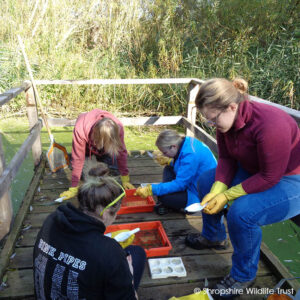 now shifting on how to better deliver outdoor learning opportunities, building on successful initiatives like Nature Friendly Schools, to unlock their full potential and incorporate these into the mainstream school curriculum. This would help identify any barriers which stop children connecting with nature during school time.
now shifting on how to better deliver outdoor learning opportunities, building on successful initiatives like Nature Friendly Schools, to unlock their full potential and incorporate these into the mainstream school curriculum. This would help identify any barriers which stop children connecting with nature during school time.
The UK has the potential to lead on climate and sustainability education, and there are positive signs in the new strategy pointing in the right direction. We now look forward to the actions that will need to follow the strategy. Including children and young people in the planning and delivery of next steps will be key to succeed.

